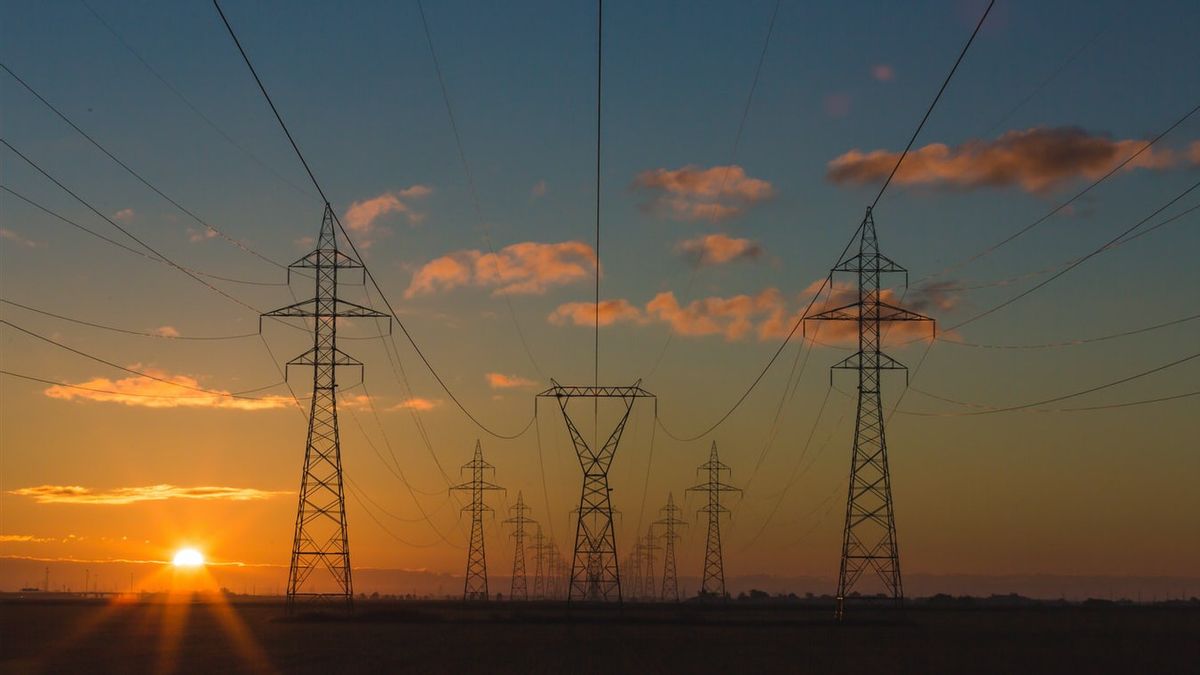JAKARTA - Since 2020 or since the COVID-19 virus and the government issued a national disaster response situation, free electricity has been enjoyed by the community.
The bad news is, free electricity targeting certain groups must end in March 2021. So, what causes the program to end?
Through this article, the VOI Team tries to explain the beginning of the free electricity stimulus, how the government can cover the budget deficit, until the closure of the free electricity program.
The Free Electricity Stimulus Program Has Been ExtendedThe government has carried out a stimulus program for payment relief or purchase of electricity and is targeting more than 30 million customers spread throughout Indonesia.
The total stimulus for free electricity in 2020 has reached IDR 13.2 trillion, then at the end of December 2020 the program was reinstated - until March 2021.
Starting from December 2020 to February 2021, the total stimulus issued by the government reached IDR 2.6 trillion, and it is estimated that by March 2021 the budget could reach IDR 4.6 trillion.
Meanwhile, in March 2021, an extension of the electricity purchase / payment relief stimulus has been determined for the second quarter of 2021, with an estimated budget of IDR 2.3 trillion.
Deputy Minister of BUMN: Free Electricity, a Government Game ChangerRegarding the free electricity stimulus, Deputy Minister (Wamen) I of BUMN Pahala Mansury once explained that this was aimed at restoring the national economy during the COVID-19 pandemic.
Mansury introduced this government policy as a "game changer", which is expected to be the driving force behind Indonesia's economy by 2021.
"We see that Indonesia's economic recovery policy in 2021 will very much depend on several initiatives that have been recognized in our government as policies to be able to make a breakthrough or game changer this year," he explained, Thursday, March 4, 2021.
The free electricity stimulus policy, coupled with several other policies, including interventions in the health sector, subsidized internet quotas, and structural reforms (provision of employment, empowerment of MSMEs, regulatory reform, and investment development)
Free Electricity Budget from Where?Last year, Minister of Finance Sri Mulyani in his press conference in Jakarta stated that the central government had allocated an allocation of IDR 3.5 trillion to the public for free electricity, Wednesday, April 1, 2020.
The government's target at that time was 24 million subscribers and a 50 percent discount for customers with 900VA power for the underprivileged category for three months.
Sri Mulyani explained that the budget allocation is part of the Additional Expenditure and Financing of the 2020 State Budget for a "social safety net" in the context of handling the COVID-19 pandemic. The total budget is IDR 110 trillion.
ABPP Prioritized for Handling COVID-19Based on state budget data obtained from the official website of the Ministry of Finance, the 2020 State Budget is only IDR 1,760 trillion from the initial estimate of IDR 2,233 trillion.
Meanwhile, the State Budget increased by Rp2,613.8 trillion from the previous estimate of Rp2,540.422 trillion.
The government had previously determined an additional spending for handling COVID-19 amounting to IDR255,110 trillion. In addition, there is a Regional Transfer Budget and Village Fund (TKDD) with an estimated value of IDR 762.718 trillion.
The detailed calculation of the state budget above creates a deficit of IDR 852.935 trillion (or 5.07% of GDP).
The deficit is normal, because the Central Government Budget Structure (ABPP) is prioritized for handling COVID-19. The impact is several threats to the country's economy, such as health, social security, and economic recovery.
Regarding the “social safety net”, the government has decided if the funds are taken from the TKDD Budget which is allocated in the villages in the form of the poor. In addition, these funds are also intended for activities to handle COVID-19
Jokowi: Free Electricity Is Included in the Social Safety Net ProgramBased on President Joko Widodo's presentation in a press conference on April 7, 2020, it was found that there were no less than Rp110 trillion in funds to meet the basic needs of the community during the pandemic. The funds are taken from the 2020 state budget expenditure.
"So that it is appropriate and accurate to involve RT / RW and village and local governments so that this assistance can really be appropriate," said Jokowi.
The mechanism put forward by Jokowi at that time was referred to as the government's “Seven Jurus Sakti” as a Social Safety Net Program including the Family Hope Program (PKH), Cash Forces (PKT), Direct Cash Assistance (BLT), Basic Food Cards, Pre-Employment Cards, subsidies electricity for certain groups, and social assistance for the Jabodetabek area.
How Does the Government Close the Budget Deficit, Debt?The Regional Office of the Directorate General of Treasury for the Province of DKI Jakarta, Windraty Ariane Siallagan in his essay describes one of the steps the government has taken to cover the budget deficit during the COVID-19 pandemic.
Through an article entitled Government Financing Strategies to Overcome the Deficit of the COVID-19 Pandemic, Siallagan explained that one of the ways the government has taken to overcome the budget deficit is through debt.
It is written, if debt dominates the source of government financing. However, there are other sources of financing that come from internal sources, including the use of the excess budget balance (SAL), the Government's Endowment Fund and Funds sourced from the Public Service Agency (BLU).
Not Forever Bad National DebtAlthough state debt often creates controversy and is associated with bad things, it is important to know if debt in the economy is referred to as leverage or a lighter. In other words, if debt is managed wisely, it can lead to benefits.
The government in the short term can take advantage of public debt to stimulate aggregate demand to boost economic growth. The policy is expected to increase taxes and increase government solvency.
Several public debt instruments used by the government include Government Securities (SBN) and Loans. It should be noted that SBN consists of Government Securities (SUN) and Government Sharia Securities (SBBN).
What are the Benefits of SBN Issuance for the State? 1. Raising FundsThe intended fundraising is from individuals or companies in order to cover the deficit and finance state spending.
2. Closing CashSBN is useful for covering short-term state cash shortages resulting from a cash flow mismatch (cash mismatch) of receipts and disbursements (cash mismatch) within a period of one year.
3. Fiscal InstrumentsSBN is useful as the third fiscal instrument used to manage the country's debt portfolio. However, it needs to be underlined if the issuance of SBN should be done on the domestic market to open up opportunities for private placement requests.
Foreign Loans to Cover Budget DeficitsForeign loans made by the government can be made with withdrawals from bilateral and multilateral institutions, some of which are the World Bank, ADB, AFD, KfW, JICA, EDCF, and AIIB.
Based on data from the Ministry of Finance in May 2020, SBN to total debt is around 84.49 percent and 15.51 percent comes from loan debt. The debt-to-GDP ratio is thus around 32.09 percent.
Thus, the crisis due to the COVID-19 pandemic makes accumulation of government debt unavoidable. However, the most important thing is to calculate the debt-to-GDP ratio.
The calculation then becomes the stake for the government, whether it is able to repay the state debt or not.
The government debt ratio in May 2021 is still categorized as safe (the safe limit is 37.64 percent to 38.50 percent of GDP). The task of the government is only to maintain the stability of this ratio, and most importantly to carry out handling of the pandemic so that the public believes and feels safe.
In addition to exploring about the free electricity stimulus policy and how the government can cover the budget deficit, follow other domestic and foreign news only on VOI, Time to Revolutionize Reporting!
The English, Chinese, Japanese, Arabic, and French versions are automatically generated by the AI. So there may still be inaccuracies in translating, please always see Indonesian as our main language. (system supported by DigitalSiber.id)








